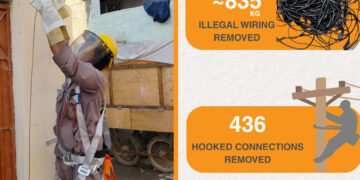Meta, the social media giant, has relaxed its rules following Russia’s invasion of Ukraine. According to a Reuters report, Meta has temporarily relaxed its rules on hate speech due to its attack on Ukraine. This means that no action will be taken on behalf of any social media platform for writing words or sentences like ‘Death to Russian invaders’ on Facebook.
According to an internal mail accessed by Reuters, Meta has made some changes to its hate speech policy, allowing people to post about violence, including the assassination of Russian President Vladimir Putin and the assassination of Belarusian President Alexander Lukashenko. No action will be taken against those.
Menta said in his statement
Alleged policy changes will be valid in countries such as Ukraine, Armenia, Azerbaijan, Estonia, Georgia, Hungary, Latvia, Lithuania, Poland, Romania, Russia, and Slovakia.
In the mail accessed by Reuters, Meta wrote that we are doing this because we have noticed that in this case, ‘Russian soldiers’ are being used as a proxy for the Russian military. Hate speech policy prohibits attacks on Russians.
Tech giants and multinationals have banned their services and sales in Russia, including Moscow’s action on Twitter, which is banned across the country amid the Russo-Ukrainian war.
Meta’s ‘extremist’ activities
Such a move undermines the hate speech policy that Meta has spent years creating and fine-tuning under the pressure to better control user content.
Meta believes that people raise their voices and join more freely, when they do not feel attacked on the basis of who they are. And this hate speech creates an atmosphere of intimidation and exclusion. And in many other cases promotes offline violence.
The Russian embassy in the US wrote on Twitter, “Facebook and Instagram users do not give the owners of these platforms the right to set the standard of truth and pit nations against each other.
In addition, social media giants with a large user base around the world are expected to try to be as neutral as possible when it comes to international geopolitical conflicts. Yet it seems that Meta has made this decision of its own accord.
Why is Meta comfortable doing this?
META has already chosen a side in the Russia-Ukraine conflict under pressure from Ukraine, the United States, the European Union and most of the international community.
It began with a fact-finding and labeling of four Russian state-owned media outlets. It also stopped the ability of these outlets to run ads or make money on the platform. In February, it shut down networks targeting Ukraine with malicious propaganda and restricted access to RT and Sputnik throughout the European Union.
Instagram is not yet banned in Russia, but it is worth noting that according to Statista, it has 160 million users in the US and over 120 million users in the European Union, compared to 63 million in Russia.
Another possible reason for Meta to make this decision may be its support of its own user base. Instagram and Facebook’s largest user bases are in countries that are either neutral (such as India) or support Ukraine.
A survey by the Atlantic Council indicates that most people in the West support Ukraine and oppose the idea of ??”sacrificing” it to improve relations with Russia. Meta, on the other hand, is not the only one-sided company.
Many companies, headquartered in the US or allied countries, have also taken action against Russia, which is already mired in economic sanctions.
Tech giants such as Apple, Twitter, Google, Amazon and Netflix have suspended services in the country, and automakers from Germany, Japan and Korea are out of the market.
Last week, Cogent Communications, one of the world’s largest Internet backbone providers, removed Russia from its infrastructure to carry Internet traffic around the world.



















